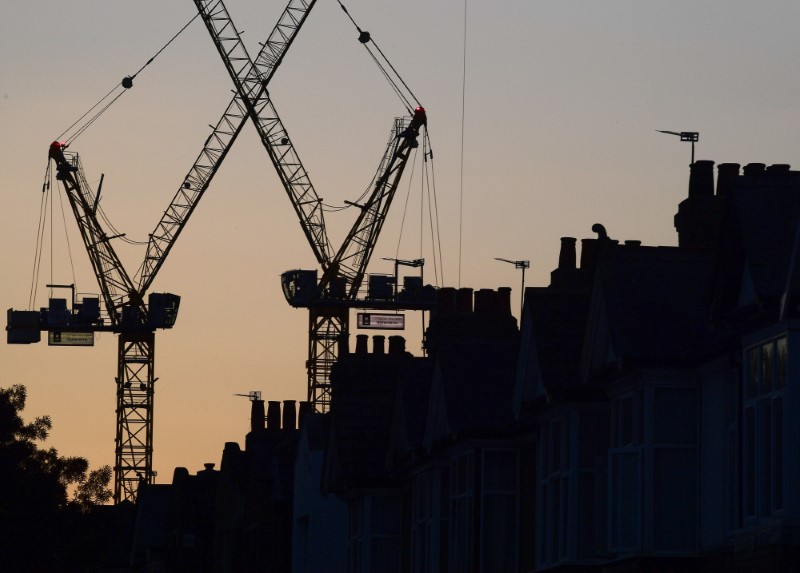LONDON (Reuters) - House prices in central London saw their most widespread declines since 2009 as Brexit uncertainties and high transaction costs dented demand for high-end property in the British capital, a survey showed on Thursday.
Overall, British house prices grew modestly in March, the Royal Institution of Chartered Surveyors (RICS) said.
The RICS monthly house price index held at +22 in March, unchanged from its downwardly revised reading for February and the lowest since September 2016.
"The UK housing market continues to lack impetus, with new buyer enquiries and agreed sales stagnant in March," RICS said.
Outside London, price momentum has strengthened since the end of last year.
But in the capital, prices fell in central areas due to a steep increase in a purchase tax for second homes and property valued over 1 million pounds ($1.25 million), as well as uncertainty about the country's prospects once it leaves the European Union in 2019.
Official data published on Tuesday showed house prices in London rose at their slowest pace in nearly five years in the 12 months to February, increasing by 3.7 percent.
"High-end sale properties in central London remain under pressure, while the wider residential market continues to be underpinned by a lack of stock," RICS chief economist, Simon Rubinsohn, said.
"For the time being it is hard to see any major impetus for change in the market, something also being reflected in the flat trend in transaction levels," he added.
RICS polls members across Britain, but says its regional data for London better reflects trends in central London rather than in outer boroughs.
Mortgage lender Halifax reported last week that average house prices in the first three months of this year were 3.8 percent higher than a year earlier, the smallest rise in nearly four years. [nEONH440SI]
Most economists forecast that British house prices will come under further pressure over the course of 2017 as wages fail to keep up with inflation, though few predict outright falls.
RICS said a large majority of its members in Britain overall - but a slimmer majority in London - expected prices to rise over the next 12 months.
Before last year's Brexit vote, then Chancellor of Exchequer George Osborne had warned Britons could expect a 10 percent hit to house prices if they voted to leave the EU.

($1 = 0.8003 pounds)